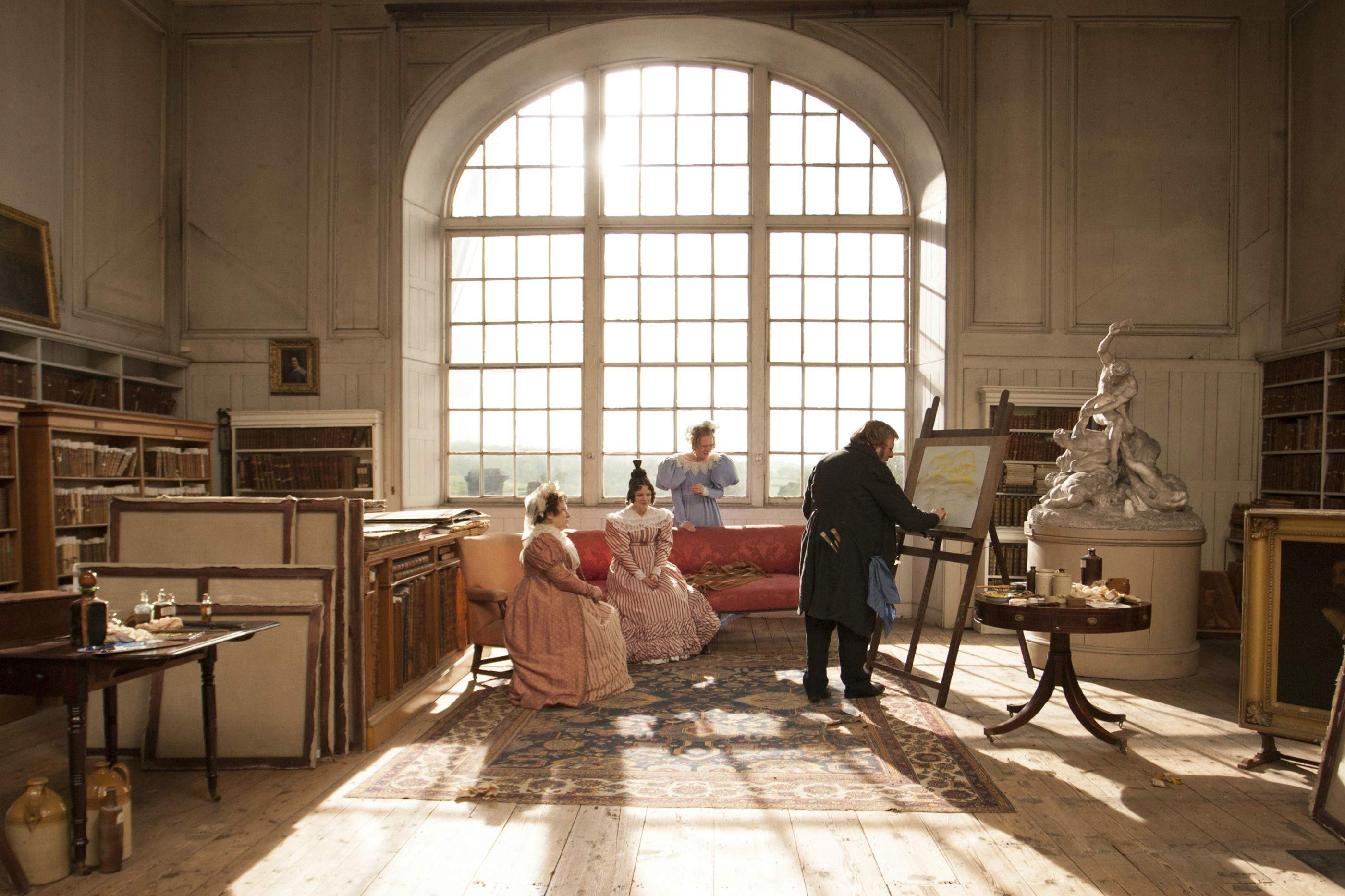Mr. Turner
Timothy Spall grunts and growls his way through this brilliant biopic.
Overview
It was a groaning, grimacing Timothy Spall who won the Best Actor Award at the 2014 Cannes Film Festival, for a role in which his face is frequently scrunched, his posture is constantly hunched, and his voice is guttural when heard. His applauded performance leaves a lasting imprint, yet as primal as it proves, it only scratches the surface of a character and a film both called Mr Turner. Beneath the physicality sits a portrayal and a biopic that finds underlying beauty in brutality, while never equating both traits as opposite extremes.
Such an approach matches the 19th-century subject, the titular J.M.W. Turner, who made his name painting vistas of land and sea. Some of his oil and watercolour pieces showed pastoral elegance, but for all his praised use of light, increasingly his pictures were tinted with the destruction and violence of nature. His command of technique remained untouched; however, the tone of his canvases evolved over the course of his career. This professional progression, venerated now, wasn’t well received during his lifetime.
In Mr Turner, Spall inhabits the hulking figure of a reclusive and eccentric man in what amounts to slices of his existence over his final quarter-century. In his personal affairs, his ailing father (Paul Jesson), his dutiful housekeeper (Dorothy Atkinson), and his secret landlady turned companion and confidant (Marion Bailey) all influence this last difficult chapter, one also marked by the former mistress (Ruth Sheen) and daughters (Sandy Foster and Amy Dawson) he refuses to publicly acknowledge.
Writer/director Mike Leigh is known for his fondness for and feeding off of the improvisation of his cast. His films — recently, Happy-Go-Lucky and Another Year – are a cooperative act between the auteur and his actors. Accordingly, his overarching narratives can be driven by the whims of individual scenes, as is strongly the case here. In Mr Turner, Leigh has crafted a pieced-together story that showcases the very best of everyone involved. Spall’s every action may monopolise the frame, but in this feature as in all of the filmmaker’s offerings, there isn’t a bad performance to be found amongst the sprawling yet subtly brushed tale.
Indeed, it is with a painter’s touch that Leigh guides his cast, and that his actors enliven their characters, constructing the film layer by layer. The exquisite visuals by Cannes award-winning cinematographer Dick Pope perform the same creative task, further perfecting the feature’s evocation of its central vocation. From sequences following Turner traversing the countryside, to quiet conversations stolen indoors, every image tumbles from artistry – whether glimpsed alone or considered as a whole.
As Mr Turner finds the humanity within the harshness of a life of winding down and of an extraordinary talent housed within a complex man, Leigh and his collaborators on-screen and off turn the corresponding account into its own masterly work.





